|
COP21
UNITED NATIONS TALKS
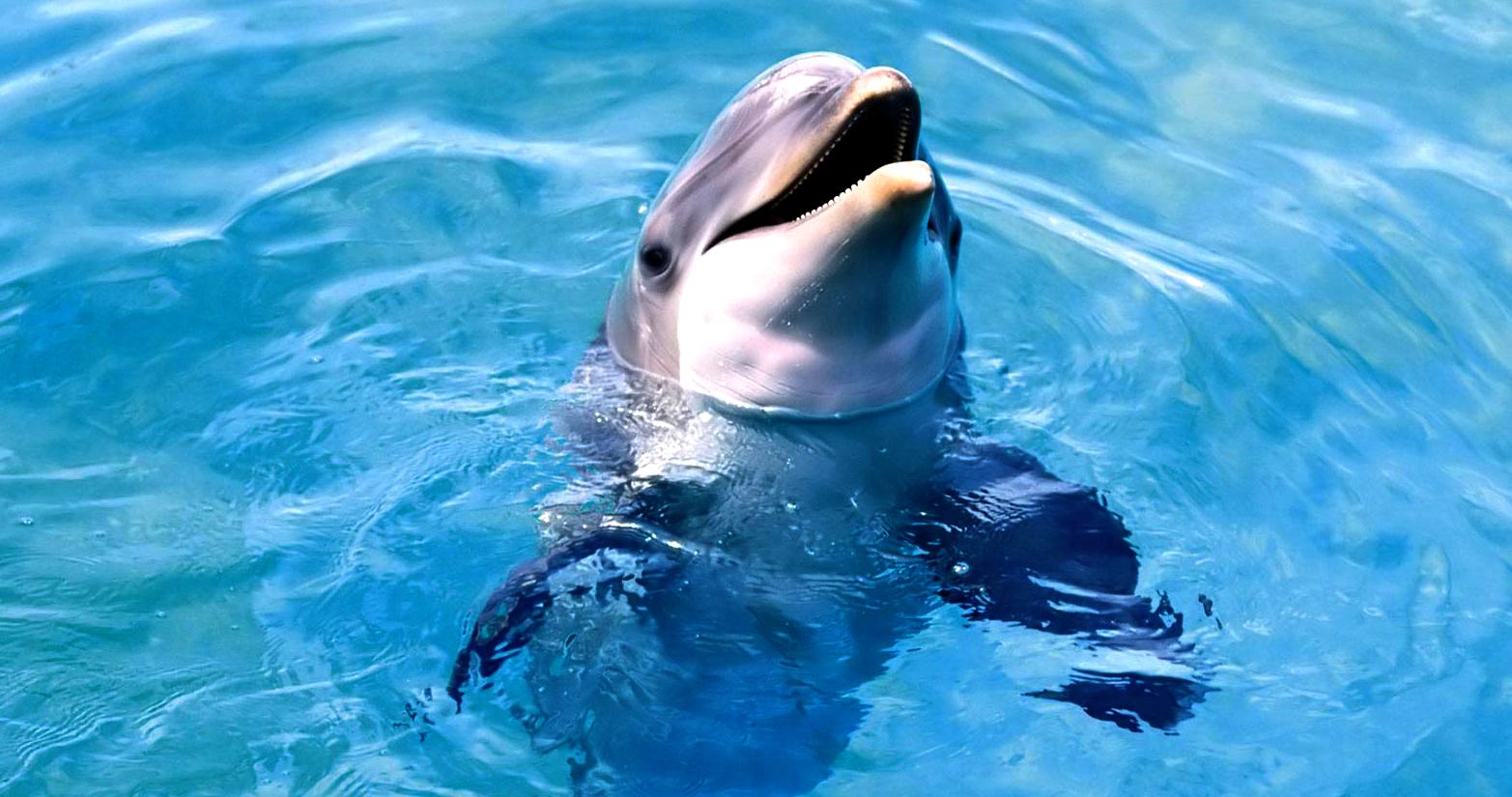
FLIPPER
HATES HOT WATER - Actually, acid oceans. Acid oceans are
affecting his habitat. What is really bothering Flipper the
Dolphin is that he cannot be at the talks in Paris to say what
is on his mind. He would like to tell the 150 heads of state
that fish stocks are down and coral reefs are dying. You may
not think much about that on land, but if you were to
concentrate of sustainable zero carbon transport, you'd be
doing yourselves a favour and doing marine life a good turn at
the same time. So, please, get you act together, make the
change to electric vehicles - and save the oil for when we
really need it.
DECEMBER
7 2015
Calling climate change a defining issue of our time, United Nations Secretary-General Ban Ki-moon today told top government officials that the opportunity exists “to define our own destiny” at the UN climate change conference (COP21) in Paris.
“In rising to the climate challenge, we can set the world on a sustainable footing for generations to come, and lay the foundation for prosperity and security for all,” he said at a High-Level ministerial segment one week into COP21, which kicked off at the Paris-Le Bourget site last Monday in the north-east of the French capital.
Today, the second week of negotiations begins, with the aim of reaching a new universal climate agreement to limit global temperature rise to below two degrees Celsius.
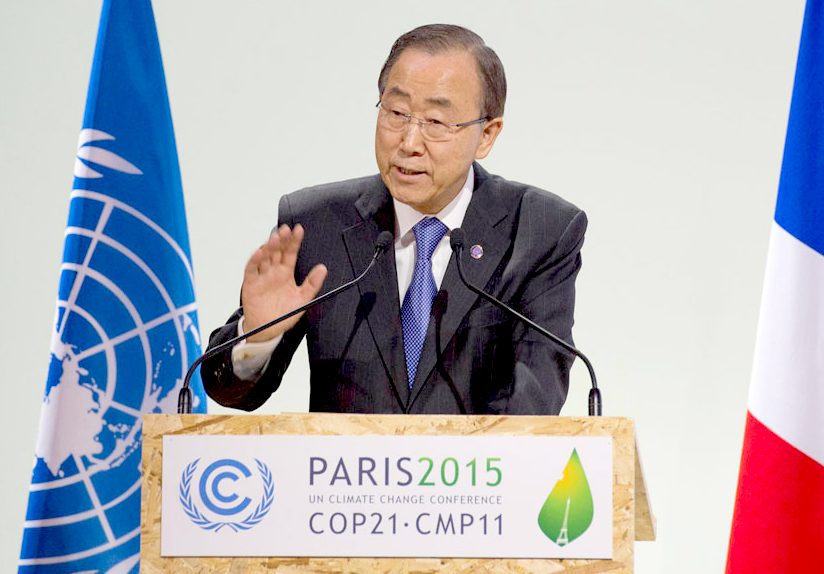
“A week ago, 150 world leaders stood here and pledged their full support for a robust global climate agreement that is equal to the test we face,” Mr. Ban recalled. “Never before have so many Heads of State and Government gathered in one place at one time with one common purpose.”
The UN chief underlined that leaders have assured him they will work to remove any roadblocks.
“They have called for strong ambition and re-affirmed their support for curbing greenhouse gas emissions and strengthening resilience to changes to come,” he stressed, calling on leaders to translate “this historic call for action into a durable, dynamic, credible and fair climate agreement.”
Noting that outside the negotiating halls there is a “rising global tide for a strong, universal agreement,” he voiced what the people of the world expect from those working towards its achievement.
“First, we need an agreement that will limit temperature rise to less than 2 degrees Celsius. For many, including low-lying and least developed countries, even a 1.5 degree rise will have grave consequences,” he insisted.
“Second, the private sector needs a clear signal that the low-emissions transformation of the global economy is inevitable, beneficial and already under way. Third, developed countries must agree to lead, and developing countries need to assume increasing responsibility in line with their capabilities. Fourth, the agreement must ensure sufficient, balanced adaptation and mitigation support for developing countries, especially the poorest and most vulnerable.”
Finally, he said the agreement must provide a single framework for measuring, monitoring and reporting progress in a transparent manner.
“The decisions you make here will reverberate down through the ages,” he declared.
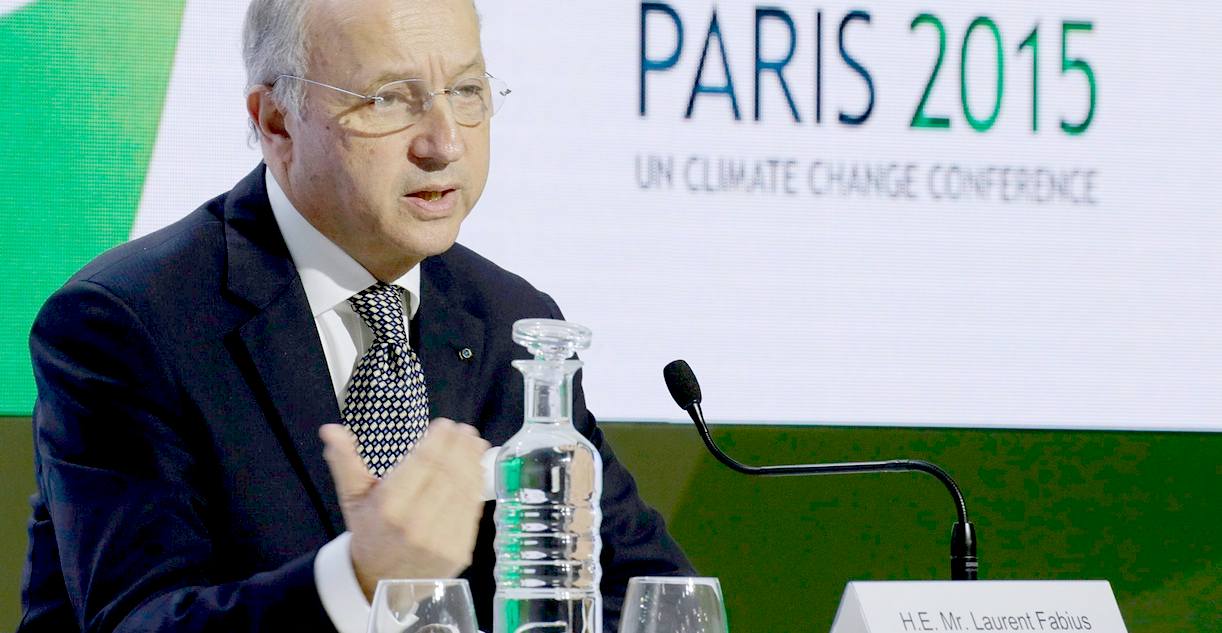
The Secretary-General also recounted a conversation he had with a young Norwegian explorer yesterday, named Erika. While visiting the Tara research vessel currently banked on the Seine, she told him: “We are the future. Your decisions today will be our future.”
Meanwhile, the Executive Secretary of the UN Framework Convention on Climate (UNFCCC), Christiana Figueres, also spoke of the groundswell of climate action being highlighted in a plethora of activities during the first week of COP21 under the Lima to Paris Action Agenda.
“Commitments have given way to real action on the part of investors, corporations, provincial and city governments, and from civil society as a whole,” she said.
Sharing his remarks at the High-Level ministerial segment, Mogens Lykketoft, President of the UN General Assembly, said that whilst the year 2015 was all about reaching agreements, the year 2016 would be about their swift implementation. He announced he will be organizing an event in New York in April to help realize the Sustainable Development Goals (SDGs) unanimously agreed this year by all UN Member States.
However, Mr. Lykketoft cautioned that a robust universal climate agreement in Paris is an essential foundation for the world to avoid crossing the threshold of a maximum two degrees Celsius global average temperature rise.
“Without your leadership, no amount of collaborative initiatives will suffice,” he warned.
Speaking at a press conference later in the day, Mr. Ban said that “from Lagos to Los Angeles, from Berlin to Beijing, people are asking for clean air and a peaceful, prosperous future for their children and succeeding generations, and also for a healthy planet.”
“We are on the verge of one of the most important peace agreements of our times – making peace with our planet,” he told reporters.
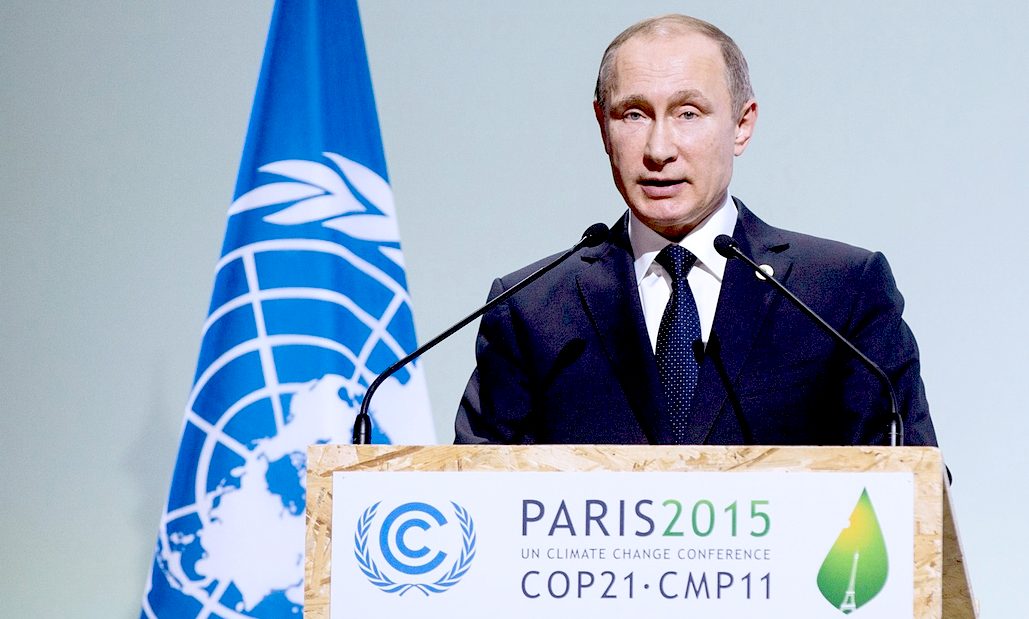
DIVIDED
- There is intense division over how the agreement is worded, in a way that would bind rich countries to specific continued investments, beyond the deal struck in Copenhagen for $100bn (£66bn) a year in public and private money to flow by 2020. (An OECD review said around $60bn was already committed, but poor countries dispute the calculations). And there are also divisions over suggestions big developing countries should join rich countries to make financial contributions to help poor countries reduce their emissions and cope with the impacts of locked-in climate change.
China pledged US$3.1bn in support to developing countries, when President Xi Jinping met President Obama at the White House this year.
THE GUARDIAN 5
DECEMBER 2015
Democratic senators staged a show of force at the Paris climate meeting on Saturday, pledging they “had Barack Obama’s back” and would defend his agenda in a Republican-controlled Congress.
The appearance by 10 Democratic senators, days after Congress voted to repeal new power plant rules, was intended to demonstrate solid political support for Obama’s climate plan – despite Republican claims to the contrary.
The 10 senators, the first wave of an expected US political invasion of the climate talks, said they would be prepared to defend Obama’s agenda in Congress and push for stronger climate action.
“What you see here are people who are going to protect what the president is putting on the table here in Paris as a promise from the American people to the world,” Ed Markey, a Democratic senator from Massachusetts, told a press conference. “We are going to back up the president every step of the way.”
Republican presidential contenders and the party’s leadership in Congress have moved repeatedly to undercut Obama’s position as a global leader on climate change.
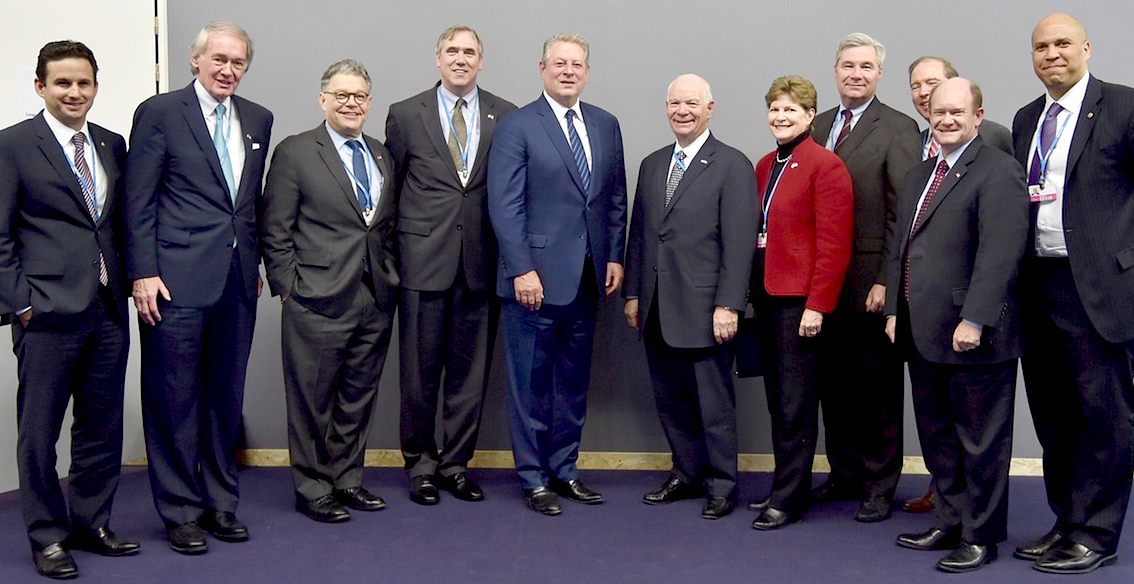
Last week, the House of Representatives voted to repeal the clean power plant rules that are the main pillar of Obama’s climate plan and released statements accusing the president of pursuing “a suspect climate agenda”.
The White House has said it would veto any such measures, and Republicans do not have the votes to overturn a presidential veto.
The senators said they were in Paris to demonstrate there was strong political commitment to fighting climate change. “We are moving in the right direction and we are not going to back down,” said Tom Udall, a Democrat from New Mexico. “We have the president’s back and we are going to make sure we keep moving in the right direction.”
But Markey said there would be more fights to come, warning that Republicans were mobilising to overturn increased fuel efficiency rules, which would raise the standard for US cars to an average of 54mpg.
Obama’s focus on climate change has put the Paris meeting on the US political map to a much greater extent than in past years.
The Democratic delegation included some of the strongest climate warriors in Congress such as Markey, who co-wrote the 2009 climate bill, Sheldon Whitehouse of Rhode Island, who has delivered well over 100 speeches about climate change on the Senate floor, and Jeff Merkley of Oregon, who last month co-wrote a bill with presidential contender Bernie Sanders that would halt new fossil fuel extraction on public lands.
All of the senators have come out strongly in favour of the US playing a global role on climate change, and called for a strong deal in Paris.
Ben Cardin of Maryland, Cory Booker of New Jersey, Chris Coons of Delaware, Al Franken of Minnesota, Brian Schatz of Hawaii, Jeanne Shaheen of New Hampshire, and Tom Udall of New Mexico also made the trip.
Several Obama administration officials are scheduled to visit Paris to demonstrate US commitment to fighting climate change.
A far bigger delegation – with Republicans as well as Democrats – is expected to visit the meeting next week, and could deliver a much more ambivalent message from the US about a climate deal.
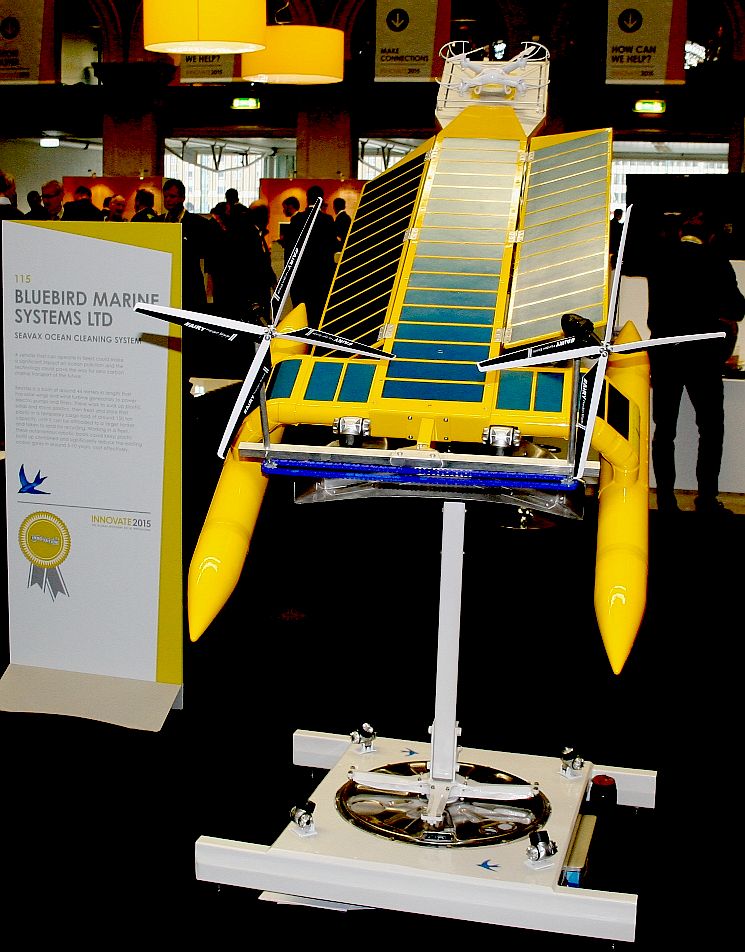
CLIMATE
ACTION
- Not just talk, this incredible autonomous vessel was on display at the Old
Billingsgate exhibition centre in London on the 9-10th of
November 2015. This ocean cleaning workboat could pave the way
for zero carbon cruise liners and cargo ships of the future.
The platform harvests energy from nature to power onboard
pumps and filtration equipment. That same energy could be used
to propel larger vessels at practical speeds to deliver goods
around the world, without acidifying the oceans.
The 2015 United Nations Climate Change Conference, COP 21 or CMP 11
was held in Le Bourget, from November 30 to December 11. It
was the 21st yearly session of the Conference of the Parties to the 1992 United Nations Framework Convention on Climate Change
(UNFCCC) and the 11th session of the Meeting of the Parties to the 1997 Kyoto Protocol. The conference objective
was to achieve a legally binding and universal agreement on climate, from all the nations of the world.
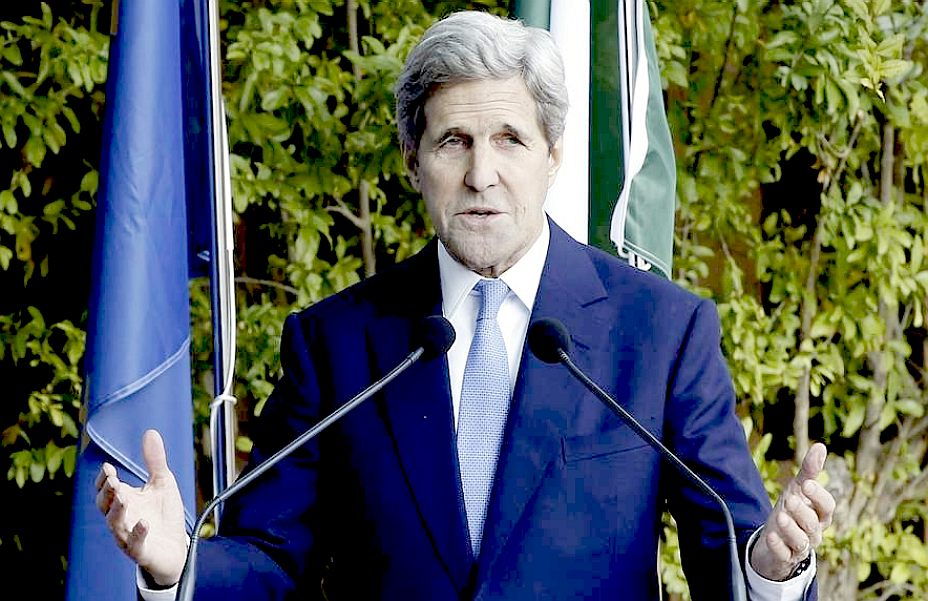
Oct. 17, 2015
- MILAN - U.S. Secretary of State John Kerry on Saturday called on countries to find consensus and reach an international agreement to reduce carbon-dioxide emissions.
Ahead of December climate change talks in Paris, where nearly 200 countries are seeking an accord to reduce carbon-dioxide emissions, Mr. Kerry urged countries to come together to finalize a deal, and said world powers must commit to a “global low-carbon economy.”
“We need every country on the same page, all pushing for an ambitious, durable and inclusive agreement that will finally put us on the path toward a global clean energy future,” he said in a speech at the Milan Expo.
He said the agreement will give business leaders confidence about the global commitment to cutting emissions and investing in low-carbon sources of energy.
The theme of the expo is food security, which Mr. Kerry said is threatened by climate change.
“We cannot have food security if farmers and fishers around the world are having a more difficult time growing crops, catching fish, raising livestock—it just doesn’t happen, it won’t compute,” he said. “The hard truth is that unless the global community comes together to address climate change, every one of these challenges—droughts, floods, extreme weather, ocean acidification, hunger, malnutrition—all of them will only become more pronounced.”
Mr. Kerry also linked food-security issues to the civil war in Syria and subsequent refugee crisis. He said Syria experienced its worst drought on record right before the civil war began in 2011, prompting as many as 1.5 million people to move from farms into Syria’s cities, intensifying political unrest.
THE GUARDIAN 7 DECEMBER 2015 - FLOODING
Winter freeze-ups and phew-what-a-scorcher summers may traditionally have made more dramatic headlines for newspapers, but in Britain the real threat from climate change today comes from flooding. The rains that hit north-west England and southern Scotland over the weekend were certainly exceptional. A record 341.4mm of rain fell at Honister in the Lake District. And the storms had devastating consequences. One man has died, 3,500 homes have been flooded, more than 2,000 of them in Carlisle, while road, rail and power links have all been cut. Yet this year’s floods were hardly unusual.
The floods of December 2015 follow, among many others, floods in 2014 in Somerset and the Thames valley, floods in north Yorkshire and Tyneside in 2012, floods in West Cumberland in 2009, floods in the Severn Valley in 2007 and floods in Carlisle in 2005. This is getting to be almost an annual event. Those who are at the sharp end are entitled to be angry. It is high time we learned the lessons better and got the measure of the problems more thoroughly.
The first thing we need to learn is to stop talking about once-in-a-century risks. Many of the worst affected areas in the current floods are places that have already been through bad floods in the past few years. Several had been equipped with sturdier and more comprehensive flood defences, which have held up against recent but lesser flood threats, as David Cameron was right to point out when he visited Carlisle on Monday.
Yet when the rains came this time those defences were overwhelmed. Cockermouth, on the edge of the Lake District, was inundated in 2009 when eight-foot-deep floods coursed through the town centre. Since then, a £4.4m system of flood barriers has been installed to protect the town from its two rivers. But still the floods came back to Cockermouth at the weekend. For some people in the town, this was the fourth flood in a decade. Things can’t go on like this.
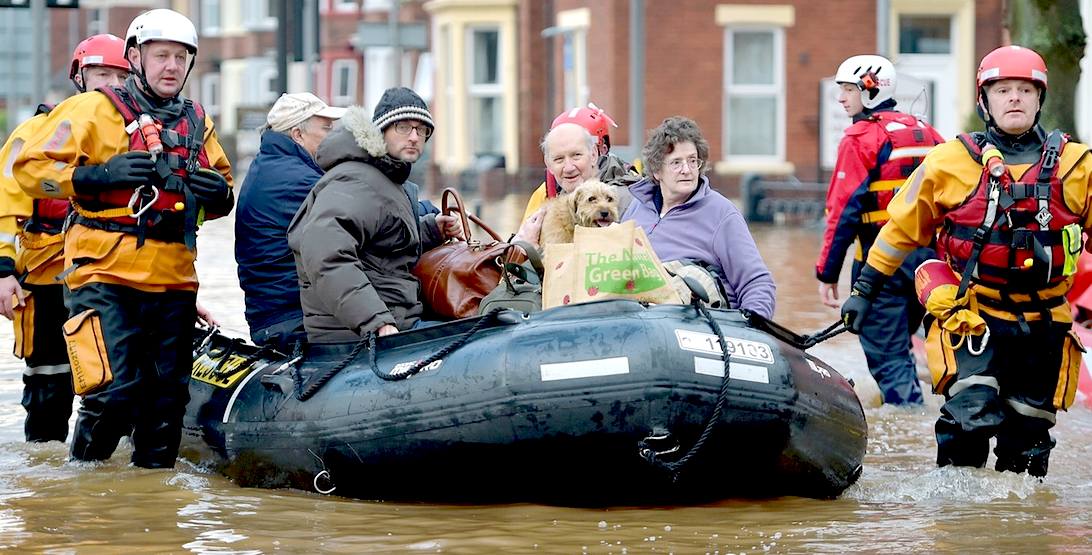
When a house is flooded, the consequences are awful: physical dangers, damaged homes, written-off possessions and insurance claims are just the start of it. That these things should happen at a celebratory time of year – as is the case with many recent floods – is particularly miserable. But the effects endure beyond midwinter, sometimes for years, in the shape of the long clean-up, living in temporary accommodation, delayed insurance claims, increased premiums for householders and businesses, and in the exhaustion and trauma. Those who have experienced one flood will often live in fear of another whenever the heavy rains come. They should not have to do so.
Local people, the emergency services and civil society performed heroically this weekend. In the end, though, only the state has the authority and money, working with and through local government, to sort these problems out in the long term. That has to be the government’s priority, not just while the floods are still on the bulletins and front pages, but right through until the job is done.
The current government talks a lot about its commitment to infrastructure. George Osborne is fond of claiming that “we are the builders”. Surely this is therefore the time for the builders to build the infrastructure that people want and need. It’s time for the government to put its money where its mouth is. Flood defences are much greater priorities for those affected by these recurrent floods than HS2 or a third runway at Heathrow. Every pound spent on keeping communities dry and protected saves £10 in damage. It also brings the wider social and economic dividends that come with security.
Not every home can be defended against the sea or the floods all the time. As a last resort, some communities may have to move. And we need to understand that flood defences are still doing their job if they delay the flooding before being overwhelmed by it, as happened in several places this weekend. In the longer term a strategic response must contain a mix of ecologically smart strategies, rather than making a sole priority everywhere of dredging and channelling rivers which can then become even more lethal in spate. This country builds too much on flood plains. That must change too.
Although much more must be done on the ground, the fate of homes in these islands is also umbilically linked to the fate of the climate change talks in Paris. A treaty will not stop the rain. But a treaty will play its part, over time, in shaping climate change so that threatened communities do not have to look so fearfully and so often at the rising waters and say to themselves: “No, not again.”
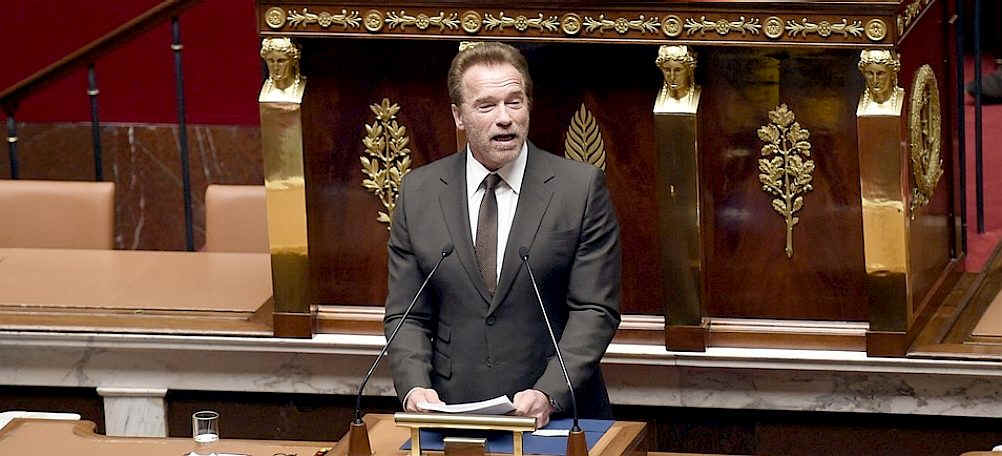
ARNIE
- The great thing about Mr Schwarzenegger is that he means
what he says. He also makes damn good movies. We think that it
is great how he uses his position as a respected actor to do
some good whenever he can. We love it that the man who became
famous for his role as the Terminator,
Arnold Schwarzenegger, is actually a real softie who cares a
great deal about the environment.
CONTACTS
3rd Floor, Two America Square, London, EC3N 2LU
Phone: +44 (0) 20 7871 0173
Fax: +44 (0) 20 7871 0101
Email: info@cop21paris.org
Twitter: https://twitter.com/Climate_Action_
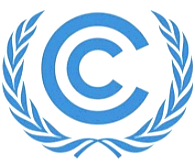

LINKS
CNN
2015
November 30 world news cop21 Paris conference five things you
need to know
CNN
latest news 2015/11/29
Europe France Paris cop21 climate change conference
Wikipedia
2015_United_Nations_Climate_Change_Conference
Twitter
cop21
COP21
The
Guardian environment 2015 November 28 thousands march over
climate change in Brisbane and across New Zealand
CLF
blog
climate talks must include plan for worlds oceans
http://www.cop21paris.org/
Popular
Mechanics science environment how bad is the plastic pollution
in the Atlantic
Blogs
ei columbia education 2011 01 26 our oceans a plastic soup
Telegraph
UK news earth environment drowning-in-plastic the great
Pacific garbage- patch is twice the size of France
http://www.popularmechanics.com/science/environment/a6046/how-bad-is-the-plastic-pollution-in-the-atlantic/
http://blogs.ei.columbia.edu/2011/01/26/our-oceans-a-plastic-soup/
http://www.telegraph.co.uk/news/earth/environment/5208645/Drowning-in-plastic-The-Great-Pacific-Garbage-Patch-is-twice-the-size-of-France.html
http://www.state.gov/secretary/remarks/2015/11/249393.htm
http://www.wsj.com/articles/john-kerry-urges-unity-on-fighting-climate-change-1445085912
http://www.theguardian.com/commentisfree/2015/dec/07/the-guardian-view-on-britains-floods-the-reality-of-climate-change
https://twitter.com/Climate_Action_
http://www.cop21paris.org/
http://www.clf.org/blog/clean-energy-climate-change/climate-talks-must-include-plan-for-worlds-oceans/
http://edition.cnn.com/2015/10/30/world/cop21-paris-conference-five-things/index.html
http://edition.cnn.com/2015/11/29/europe/france-paris-cop21-climate-change-conference/
https://en.wikipedia.org/wiki/2015_United_Nations_Climate_Change_Conference
https://twitter.com/cop21
http://www.cop21.gouv.fr/en/
http://www.theguardian.com/environment/2015/nov/28/thousands-march-over-climate-change-in-brisbane-and-across-new-zealand
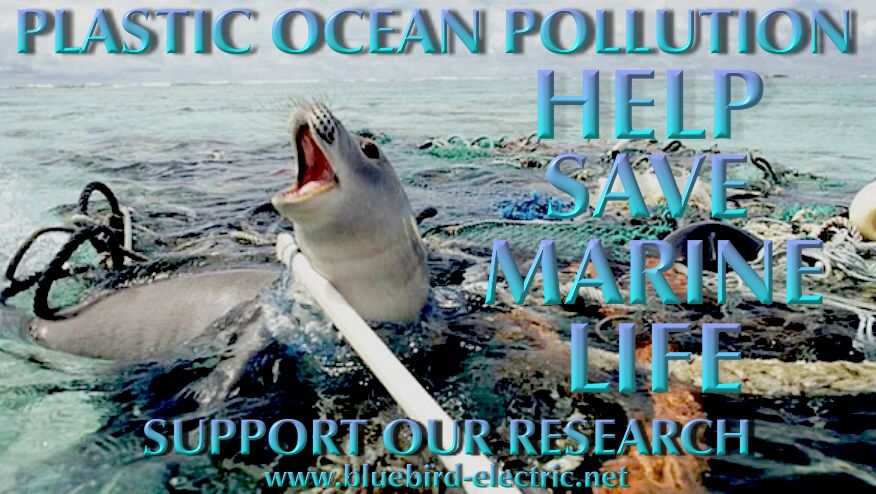
WHAT
ABOUT PLASTIC - Plastic not only has a broad range of dangerous substances built into the material during the production process (fillers, softeners, colorants, antioxidants, biocides, flame retardants, etc.), but in seawater plastic particles also act as sponges for dissolved toxic substances such as PCBs and pesticides. During the long period of residence and grinding of plastic in the fulmar stomach, such chemicals may become available for absorption by the organism. So besides the physical impact from plastic in the stomach (tissue damage, constipation, decreased sensation of hunger) there are major additional chemical risks from exposure to and accumulation of toxic substances that are carcinogenic or disturb nervous or hormonal systems. It would be a serious mistake to measure the risk of plastic pollution just from the animals killed more or less directly.
Images of a whale entangled in ropes, or a marine turtle completely filled with plastic waste, are certainly dramatic and attract a lot of media attention. However, if a large number of individuals suffer from a lightly deteriorated body condition, the consequences in lowered survival rate and reduced reproductive success may represent a major risk for the population as a whole.
Plastic debris attracts and accumulates hydrophobic organic toxins such as PCBs (polychlorinated biphenals) up to 100,000 times ambient seawater concentrations (Maro et al., 2001).
Research on benthic-feeding invertebrates suggest that toxins may be transferred from plastics to sedimant, to the organism (Tueten et al., 2007).
|










